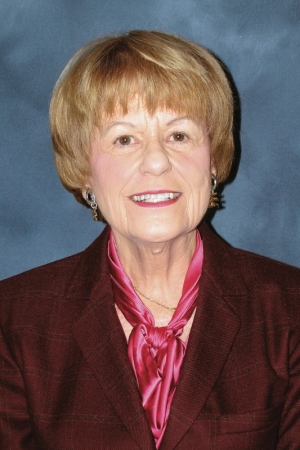Grant Will See if Community Liaisons Can Help Low-Income Patients with Depression
September 17, 2013 / by Eric Lindberg- Giving
- Research
Major depression coupled with other chronic health problems, such as heart disease or diabetes, can place a severe burden on low-income, culturally diverse individuals who are less comfortable interacting with doctors and navigating complex health care systems.
A new community-based research project led by Kathleen Ell, the Ernest P. Larson Professor of Health, Ethnicity, and Poverty at the USC School of Social Work, will test whether community members trained to provide basic health information and promote healthy behaviors represent an effective strategy to help those individuals access treatment and improve health outcomes.
“Multiple chronic illnesses, particularly among these underserved populations, are a real challenge,” Ell said. “Managing one illness is tough enough. Managing multiple illnesses is complicated in many ways.”
The three-year study, supported by a $1.3 million award from the Patient-Centered Outcomes Research Institute (PCORI), will involve recruiting 350 patients with major depression and a chronic illness from two health clinics overseen by the Los Angeles County Department of Health Services.
Some participants will be randomly selected to receive typical clinical services, whereas others will participate in A Helping Hand, a program in which community-based promotoras offer training and advice to help patients interact with health care providers, adhere to treatment, manage stress and fatigue, attend clinic appointments, and advocate for personal treatment preferences, among other strategies to improve their health.
María Aranda, an associate professor with the USC School of Social Work and project co-investigator, said promotoras are particularly well suited to deliver health care information about depression and chronic illness while respecting cultural and community traditions.
“These community health care workers have amazing characteristics and an amazing aptitude for bringing needed services to underserviced populations,” she said. “They can break down some of the typical barriers in terms of health care access and coordination of health care systems.”
Cultural and language barriers as well as health literacy issues may prevent patients with comorbid illnesses from developing strong relationships with care providers. That can lead to increased stress, poor adherence to recommended treatment, worsening health and even premature death.
The project will focus on individuals who lack health insurance or have Medi-Cal coverage, may find it difficult to travel to health care appointments due to transportation issues and can’t always afford prescribed medications. When these patients do make it to safety-net community clinics, Ell said they often face delays and limited interaction with health care workers.
“The primary care physicians in these clinics are overwhelmed,” she said. “Most of these clinics see something like 12,000 patients a month. Sometimes patients spend the whole day in the clinic and get seen at 4 o’clock even if they came in at 8 in the morning.”
In the past year, the Department of Health Services began shifting to a patient-centered model in which each patient is assigned to a health care team consisting of a physician, a nurse practitioner, a nurse care manager and a social worker, among others.
Ell and her research partners are hopeful that promotoras will fit into that integrated care model and serve as a liaison of sorts between patients and primary care providers.
“Many promotoras have recovered from or have been influenced by the same type of health conditions that the consumer or patient population is facing,” Aranda said. “They can be peer navigators.”
Study participants randomly enrolled in A Helping Hand will work through a series of modules with promotoras on issues such as developing a positive mood, managing medications, eating healthy and exercising, addressing pain and fatigue, and managing conflicts with family members and caregivers.
Using a variety of assessment tools, the research team will determine whether promotora support improves patient outcomes such as depression self-care and management, satisfaction with care, symptoms of chronic illnesses, and hospitalizations and emergency room visits.
As part of the PCORI award, Ell will be responsible for convening an advisory council of key stakeholders to oversee the project, including patients and family members, caregivers, community clinic administrators and staff members, and representatives from community-based health care agencies with an interest in the study.
Another important stakeholder group is Visión y Compromiso, which provides training and policy advocacy for a network of promotoras and community health workers.
“One of the key elements of this study is the fact that we’re going to have a very close community partnership with our research collaborator, Visión y Compromiso, and its executive director, María Lemus,” said Aranda. “She has a time-honored tradition of providing state-of-the-art promotora services in the state of California and elsewhere.”
This project is one of three PCORI awards received by researchers with the USC School of Social Work since the independent nonprofit organization was authorized by Congress in 2010 to fund research that helps patients, caregivers and clinicians make evidence-based health care decisions.
Bruce Jansson, the Margaret W. Driscoll/Louise M. Clevenger Professor of Social Policy and Administration, received a two-year, $664,852 award in 2012 to examine how health care providers can advocate for the needs of vulnerable patients. John Brekke, the Frances G. Larson Professor of Social Work Research, received a $1.24 million award this year to test a peer navigation model designed to help people with serious mental illness navigate the treatment system.
To reference the work of our faculty online, we ask that you directly quote their work where possible and attribute it to "FACULTY NAME, a professor in the USC Suzanne Dworak-Peck School of Social Work” (LINK: https://dworakpeck.usc.edu)
